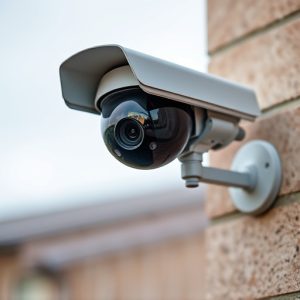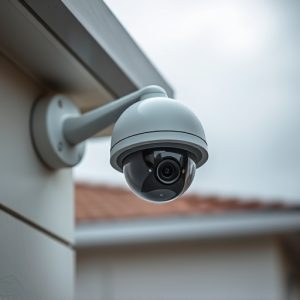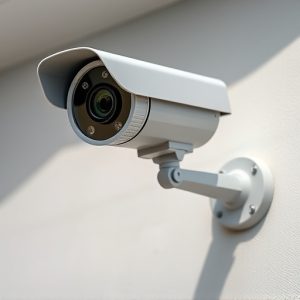Maximizing Battery Life: A Comprehensive Guide to Dummy Camera Durability
Battery-powered security camera decoys offer flexibility for homeowners, with extended battery life…….
Battery-powered security camera decoys offer flexibility for homeowners, with extended battery life crucial for continuous monitoring. Unlike wired cameras, these wireless models rely on rechargeable batteries, impacting placement and durability. High-quality lithium-ion batteries provide longer durations, ideal for remote areas. Factors like resolution, sensors, and conditions affect performance. Real-world testing and reviews are essential for accurate dummy cameras' battery life comparison. Best practices include using high-quality batteries, regular monitoring, charging schedules, power settings, and weather protection to maximize lifespan.
“Explore the world of battery-powered security camera decoys, a strategic addition to any home or business’s defense system. These dummy cameras offer a covert yet effective way to deter crime, providing peace of mind and enhanced security. In this comprehensive guide, we delve into various types, power sources, and key factors to consider for optimal performance. From battery life comparison to best practices for maintenance, discover how these devices can bolster your security measures with longevity in mind.”
- Understanding Battery-Powered Security Camera Decoys
- Types of Dummy Cameras and Their Power Sources
- Key Factors to Consider in Choosing a Battery Life Comparison
- Real-World Performance: Evaluating Battery Durability
- Best Practices for Maintaining and Maximizing Battery Life in Security Camera Decoys
Understanding Battery-Powered Security Camera Decoys
Battery-powered security camera decoys are a popular choice for homeowners and businesses seeking an extra layer of protection. These innovative devices offer the advantage of wireless setup, making them highly versatile and easy to install discreetly around properties. Unlike traditional wired cameras, battery-powered models draw power from internal batteries, eliminating the need for complex electrical wiring. This feature enables users to strategically place decoy cameras in hard-to-reach or remote areas where power outlets are scarce.
When considering these camera decoys, one of the critical factors is their dummy cameras’ battery life comparison. The lifespan of the battery can vary significantly among brands and models. High-quality batteries often provide extended operation, ensuring the camera remains active for an extended period without frequent replacements. Understanding the battery capabilities allows users to make informed decisions, balancing the convenience of wireless security with the need for reliable and long-lasting power sources.
Types of Dummy Cameras and Their Power Sources
Dummy cameras, also known as security camera decoys, come in various types, each with unique power sources catering to different needs and preferences. The primary distinction lies in their energy requirements: wired or battery-powered. Wired dummy cameras are plugged into an electrical outlet, ensuring a constant power supply but limiting flexibility in placement. On the other hand, battery-powered models offer mobility and the ability to set them up virtually anywhere without access to electricity.
When it comes to battery life comparison, these cameras vary widely depending on factors like resolution, sensor type, and battery capacity. High-definition (HD) cameras with advanced sensors generally consume more power, resulting in shorter battery lifespans. Conversely, lower-resolution models can operate for extended periods on a single charge. Manufacturers often provide specific estimates, making it easier for users to choose based on their desired level of mobility and surveillance needs.
Key Factors to Consider in Choosing a Battery Life Comparison
When comparing battery-powered security camera decoys, understanding their battery life is paramount. Dummy cameras with longer battery durations offer significant advantages, ensuring continuous surveillance without frequent replacements or interruptions. Look for products that advertise extended battery life, as this directly correlates to the camera’s effectiveness in remote or hard-to-reach areas.
A key factor in a dummy cameras’ battery performance is the type of batteries used and the overall power consumption of the device. Some manufacturers employ rechargeable lithium-ion batteries, known for their high energy density and longer lifespans compared to traditional alkaline batteries. Additionally, features like motion detection and low-light sensors impact battery drainage; efficient models strike a balance between camera functionality and prolonged battery life.
Real-World Performance: Evaluating Battery Durability
When considering battery-powered security camera decoys, one of the most critical factors to evaluate is their real-world performance, particularly battery durability. Unlike wired cameras that are constantly plugged in, these wireless models operate on power from rechargeable batteries, which can significantly impact their longevity and overall usability. To get a clear picture, it’s essential to compare dummy cameras based on battery life—how long they can operate before needing a recharge.
This comparison goes beyond mere specifications; it involves practical testing under various conditions. For instance, some manufacturers claim exceptional 12-hour battery life, but what happens when the camera is exposed to varying temperatures or continuous motion detection? A thorough analysis should consider these factors to ensure the chosen decoy can maintain its performance over time. User reviews and field tests also play a vital role in understanding the real-world battery longevity of different dummy cameras, helping you make an informed decision that aligns with your security needs.
Best Practices for Maintaining and Maximizing Battery Life in Security Camera Decoys
To maximize the operational lifetime of your battery-powered security camera decoys, several best practices should be implemented. Firstly, choose high-quality batteries specifically designed for outdoor use and cold weather conditions to prevent premature drain. Regularly monitor and compare dummy cameras’ battery life; this can help identify any discrepancies or potential issues early on. Maintaining a consistent charging schedule is key; avoid letting the battery discharge completely between charges as it reduces overall lifespan.
Additionally, consider the camera’s power consumption settings. Many models offer energy-saving modes that can significantly extend battery life. Regular cleaning and maintenance are also essential to ensure optimal performance. Protecting the decoy from direct sunlight and extreme weather conditions will further preserve its battery life, ensuring your security system remains vigilant and reliable.
Battery-powered security camera decoys offer a versatile and effective way to deter potential intruders, with their discreet nature and remote power sources. When choosing a dummy camera, consider factors like battery life, ease of installation, and weather resistance. A thorough comparison of different models can help ensure you select a device that provides reliable performance over an extended period. Regular maintenance and optimal placement are key to maximizing the lifespan of these cameras, ensuring they remain effective tools in enhancing home security without requiring complex wiring or frequent replacements.


